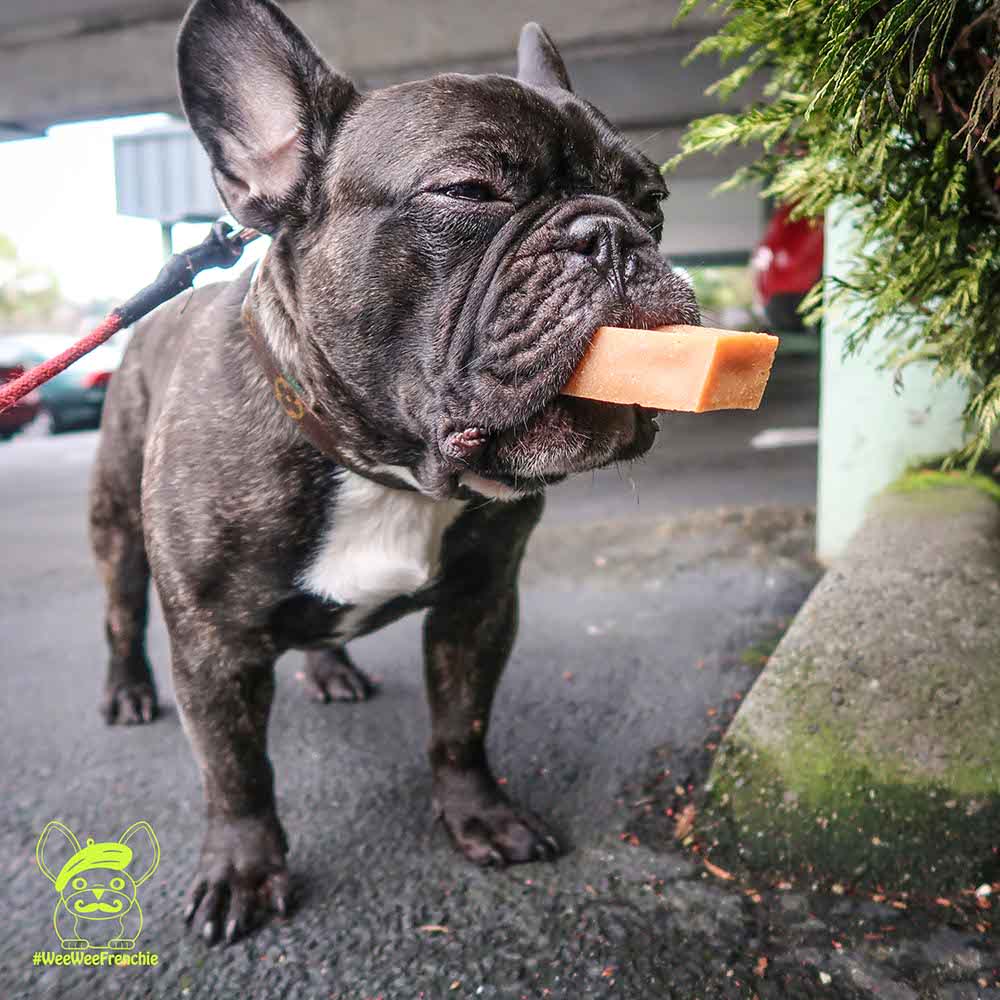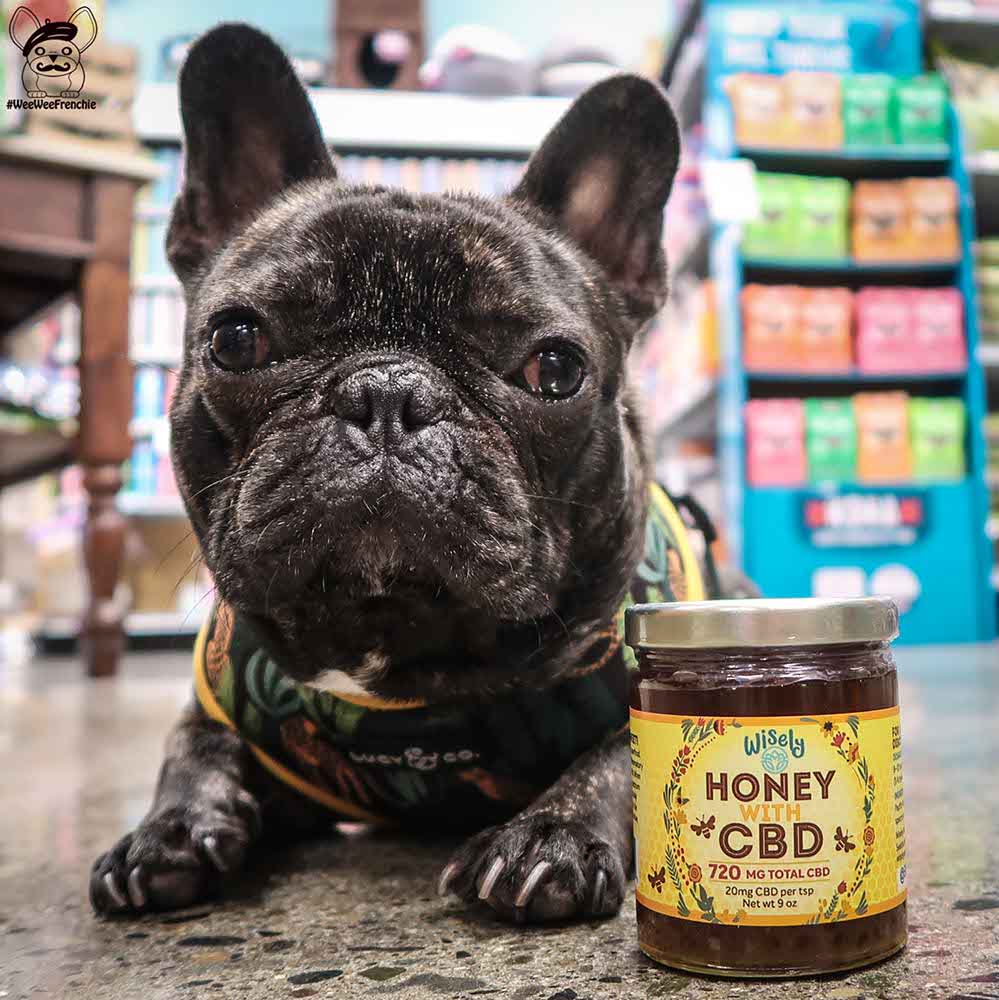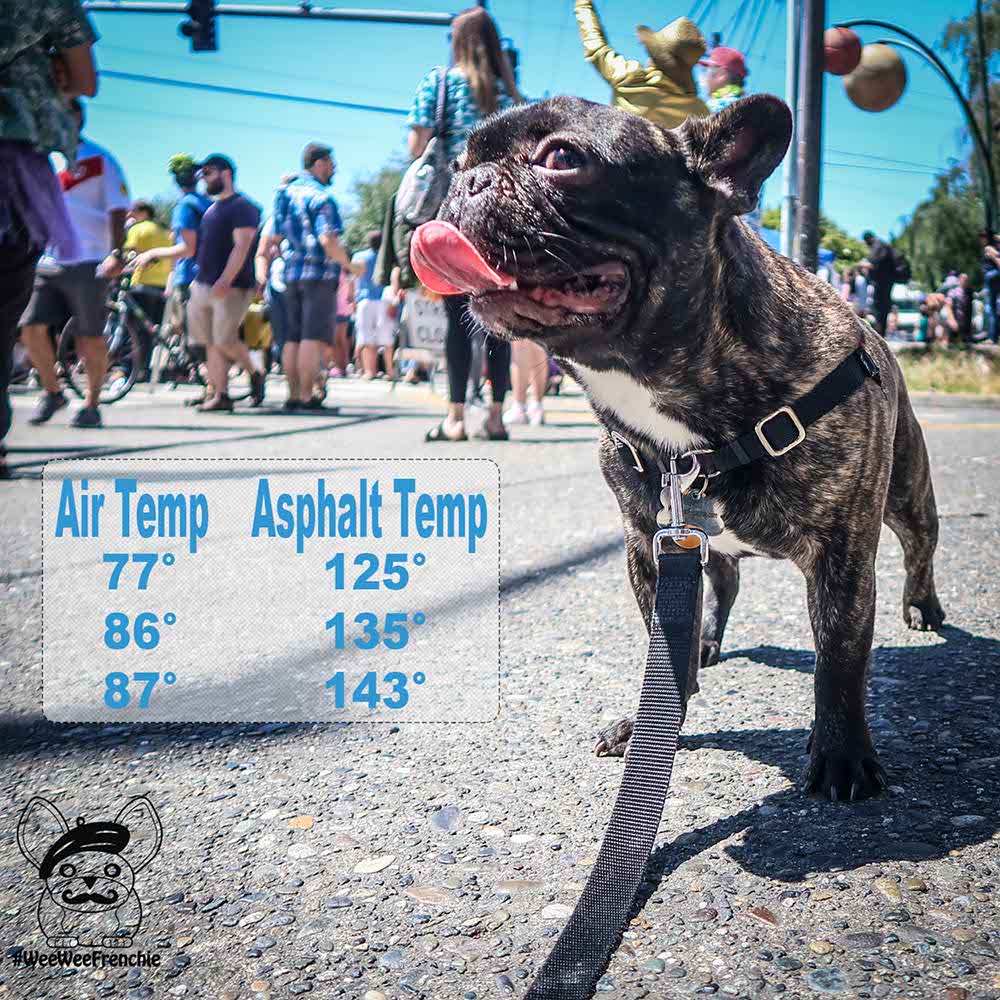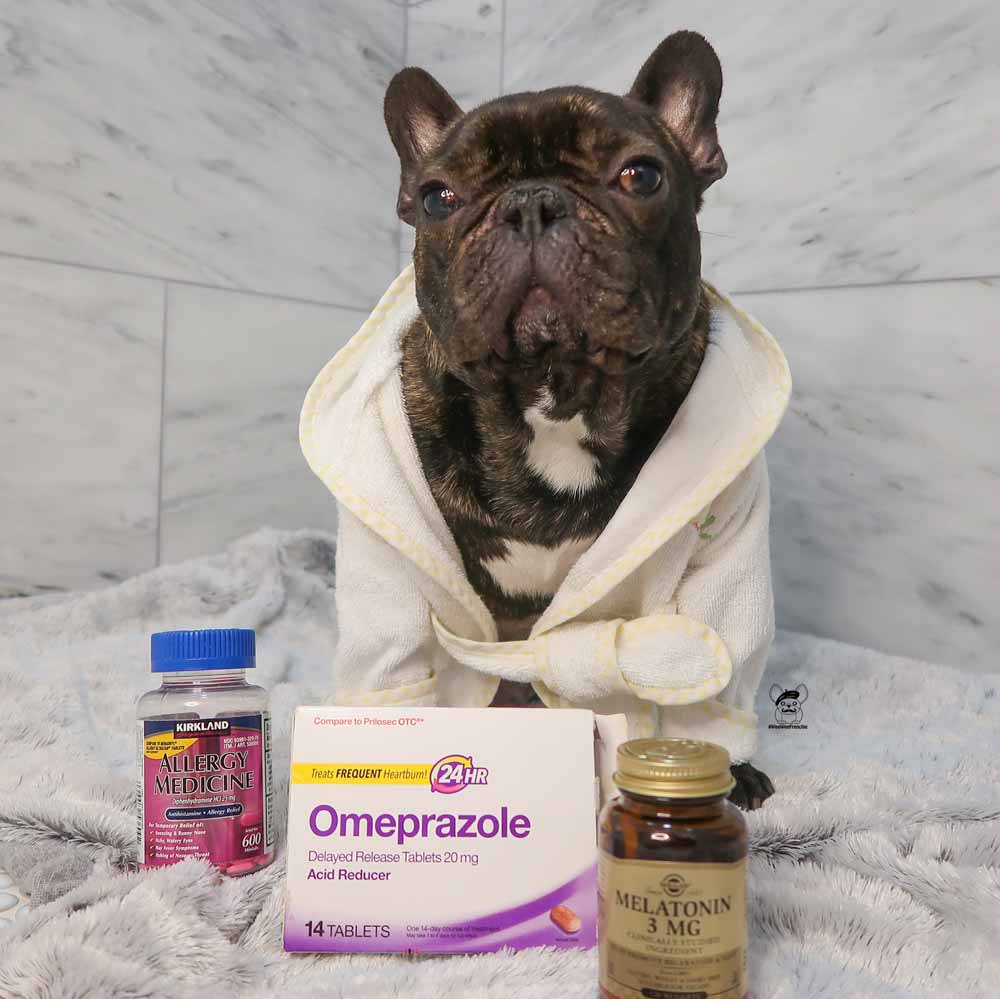What Is Puppy Teething?
Phoenix has been growing so fast so it is no surprise that he has been chewing on almost anything that he can get his mouth onto.
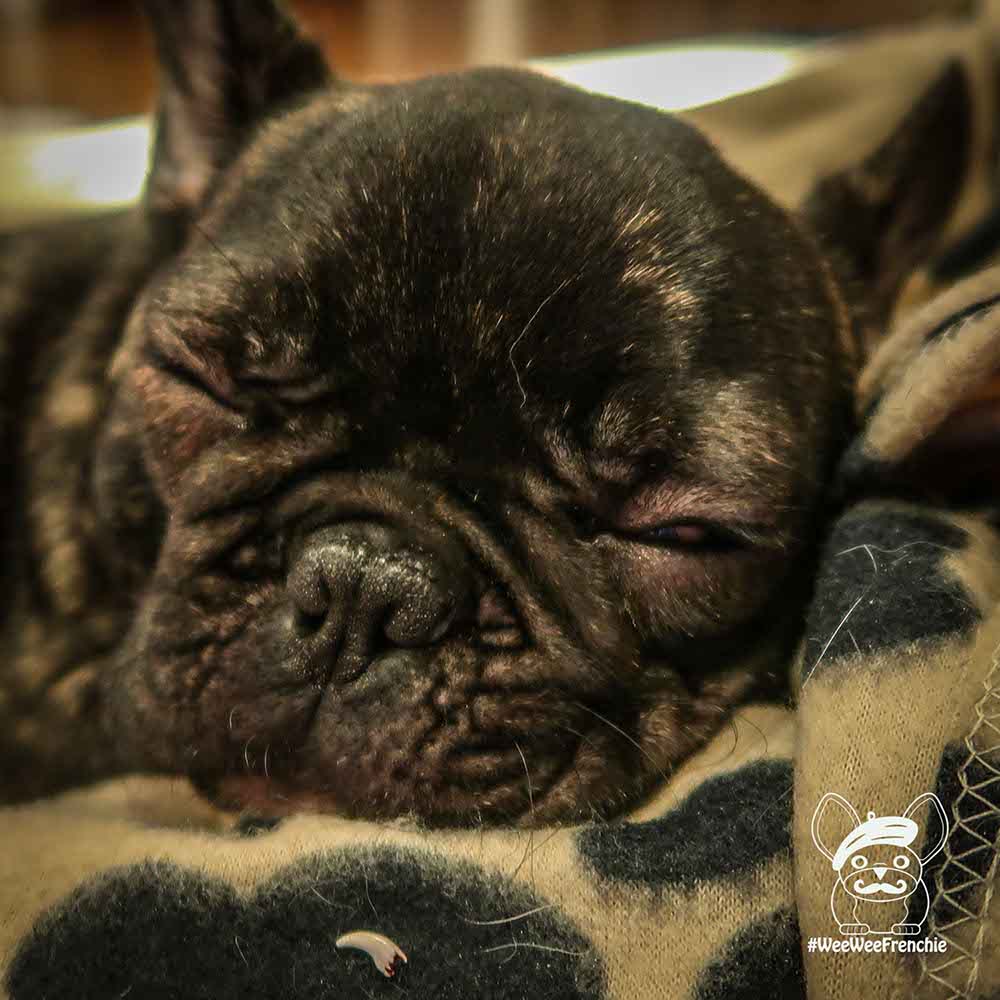
Phoenix has been growing so fast so it is no surprise that he has been chewing on almost anything that he can get his mouth onto. More recently, I caught Phoenix chewing on his feline brother’s fake mouse, which looked like it had been through a street fight because I could see blood and puncture wounds on it. I wondered if Phoenix was trying to deaden the pain he may be experiencing while teething or was he practicing hunting skills with the toy baby mouse.
By the time that I went to the vet on Saturday, I was even more curious why the vet laughed and said, “You have a mixture of baby and adult teeth, Mr. Phoenix!” Luckily, she said that was normal but I began to wonder “what the teeth” was happening to my sweet baby.
Only a few hours later, I was in puppy class when one of the instructors asked if one of the puppies were missing a tooth. I wanted to raise my hand because I could almost guarantee it was Phoenix but I thought I would keep quiet. Within minutes, all of the dogs had been examined, and it was determined that Phoenix had lost a tooth. They were kind enough to wrap it up for me as a souvenir of Phoenix’s baby teeth but I was left wondering when would Phoenix’s teething stage come to an end.
Dogs are born toothless but by 1 week to 2 weeks of age, they begin to grow their baby teeth. Baby teeth can take around 3 months to fully develop but are usually replaced by adult teeth around 4 months of age. The teething process can last from 4 months to 8 months of age before all adult teeth have been grown.
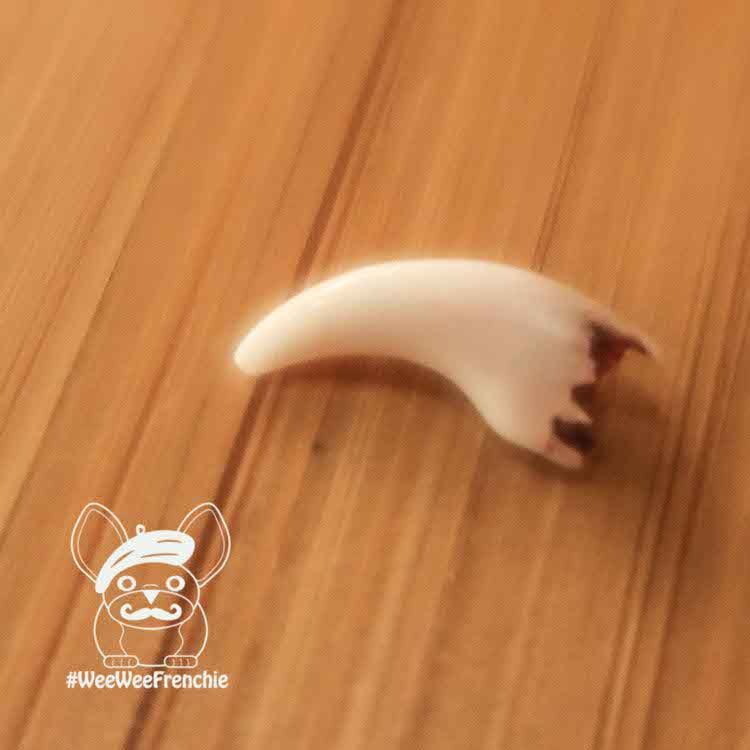
It is best to ensure your dog has plenty of chew toys and rawhide sticks to chew on while teething. Care should be taken to prevent pulling or tugging on loose puppy teeth. If gums look inflamed or swollen, it is best to take your dog to the vet for a complete evaluation to prevent infections.
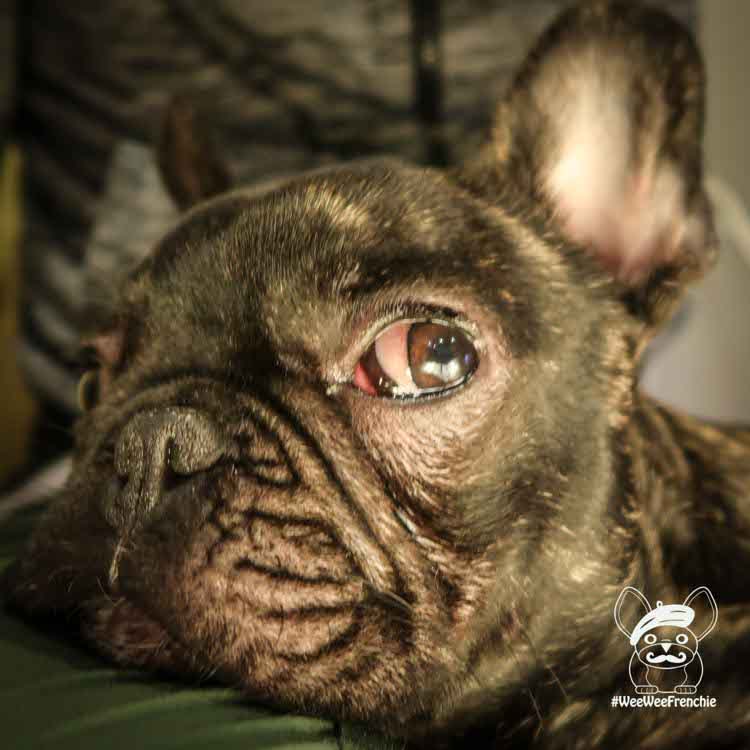
Puppies usually have 28 baby teeth, which eventually develops to 42 adult teeth. Different breeds can have different amounts of teeth. Short-snouted dogs like Phoenix, a French bulldog, or pugs can have more issues with tartar build-up, dental caries, or may have fewer adult teeth because their mouths are smaller than their larger-snouted friends.
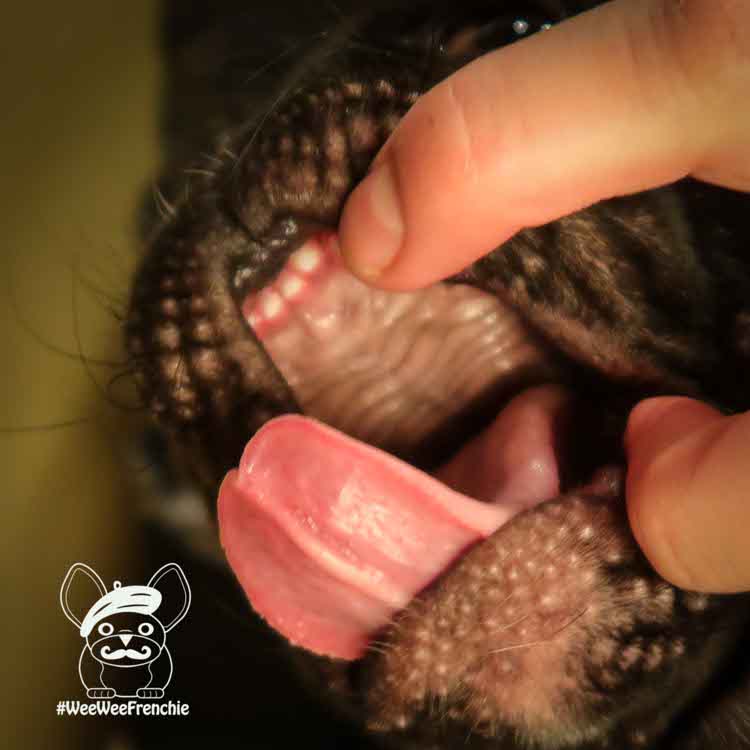
Oral hygiene is just as important for dogs as it is in humans. If plaque and tartar build-up is left untouched, it can lead to painful infections or decaying teeth. It is best to get regular dental check-ups and dental cleanings annually to prevent any issues with your dog’s oral hygiene. A good rule of thumb is that if your dog has foul breath, it could be a sign that your dog is long overdue for a tooth cleaning.
If you have a young dog or puppy, it is best to familiarize your dog with a toothbrush in order to make it easier to develop a home dental routine. Training takes time so do not rush the process and continue to expose your dog to a toothbrush as often as you can. Patience is key, and your dog will thank you for keeping them healthy.
Puppy training takes commitment, consistency, and patience. If your dog seems irritated with tooth brushing, take a break and retry in a few days. Provide plenty of chew toys and bones to help your dog with teething and to help aid in plaque removal. Professional teeth cleanings should be performed on your dog annually, and if teeth become discolored or have a foul-smell, it is best to seek veterinary attention.
Maintaining oral health is key to a happy, healthy, and long doggy life. Dental concerns left unattended can lead to heart, kidney or other serious systemic infections. Even if your dog is older, it is never too late to start introducing a toothbrush. It may not be a successful brushing experience each time but repeat exposure helps to emphasize that brushing is important for your dog’s health.

